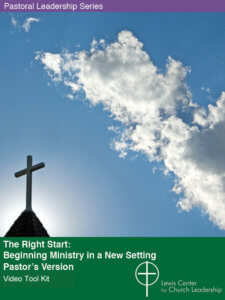Pastoral transitions are pivotal moments that deeply affect a church’s spiritual and emotional health. Barry Howard highlights that by acknowledging emotions, communicating clearly, honoring the outgoing pastor, and reinforcing mission, church leaders can guide congregations with wisdom and care. Intentional leadership rooted in prayer, unity, and hope ensures a faithful path forward during seasons of change.
A pastoral transition is one of the most impactful seasons in the life of a church. Whether a pastor retires, resigns, or is called to another ministry, the transition can stir a wide range of emotions—grief, uncertainty, anxiety, excitement, and even division. How church leadership manages this process plays a crucial role in the emotional and spiritual health of the congregation for years to come.
To lead well during this critical time, it’s essential to proactively support the congregation’s emotional needs. Below are 10 strategies for nurturing a healthy church environment during a pastoral transition.
1. Acknowledge the emotions in the room.
Change—even expected change—can feel unsettling. Some church members may feel abandoned, while others may look forward to a new chapter. Create safe spaces for open, honest conversations where members can express their feelings. Validating these emotions helps prevent division and fosters unity.
2. Communicate clearly and consistently.
During a pastoral change, transparent communication is vital. Keep the congregation informed about the transition timeline, the pastoral search process, and interim leadership. Regular updates help reduce anxiety and build trust among members.
3. Honor the departing pastor.
If the transition is amicable, take time to celebrate the pastor’s service. Host a farewell service, share personal stories of appreciation, and pray over their next journey. A thoughtful send-off brings closure and lays the groundwork for a smoother transition.
4. Provide strong pastoral care.
Pastoral transitions can leave some members feeling spiritually adrift. Church leaders—such as deacons, elders, ministry staff and interim pastors—should be intentional about offering emotional and spiritual support through encouragement, prayer and counseling.
5. Reinforce the church’s mission and vision.
A church’s identity is rooted in Christ, not a single pastor. Remind the congregation the church’s mission remains unchanged. Keeping ministries aligned with the church’s vision helps maintain focus and stability during change.
6. Maintain a consistent schedule.
Avoid making major changes to worship services or programs during the transition. Familiar rhythms provide stability and comfort. Once a new pastor is in place, there will be time to evaluate and adapt structures and schedules as needed.
7. Promote healing and unity.
If the transition follows a difficult season—such as internal conflict or leadership failure—intentional healing is essential. Offer opportunities for reconciliation, reflection and spiritual renewal. A church that takes time to heal will be more receptive to new leadership.
8. Cultivate a spirit of hope and expectation.
Encourage members to view this transition not as a crisis, but as a divine opportunity. A hopeful attitude among leadership will positively influence the congregation. As Romans 8:28 reminds us, “God works in all things to bring about good.”
9. Create opportunities for fellowship and relationship-building.
Plan social events, meals and team-building activities to strengthen relationships during the interim. Laughter, shared meals and meaningful connection help maintain community and morale.
10. Pray the prayer of “holy indifference.”
During the pastoral search, invite the congregation to pray as Jesus did in Matthew 26:39: “Not my will, but your will be done.” A church that earnestly seeks God’s guidance will be spiritually prepared to embrace its next chapter with confidence and joy.
A pastor’s departure marks the end of one chapter but also the beginning of another. How a church navigates this transition will shape its emotional and spiritual health for years to come. By prioritizing clear communication, pastoral care, unity and prayer, a congregation can move forward with faith, trusting God will guide them as they write the next chapter in their church’s story.
This material was shared by Baptist News Global on April 7, 2025, and is shared with permission.
 Related Resources
Related Resources
- The Right Start: Beginning Ministry in a New Setting, a video tool kit resource from the Lewis Center
- 50 Ways to Welcome a New Pastor, a free resource from the Lewis Center
- Passing the Baton to Your Pastoral Successor by Jim Ozier
- Preparing to Receive a New Pastor by Bob Crossman
- Helping Families Cope During Pastoral Transitions by Lovett H. Weems Jr.
If you would like to share this article in your newsletter or other publication, please review our reprint guidelines.







